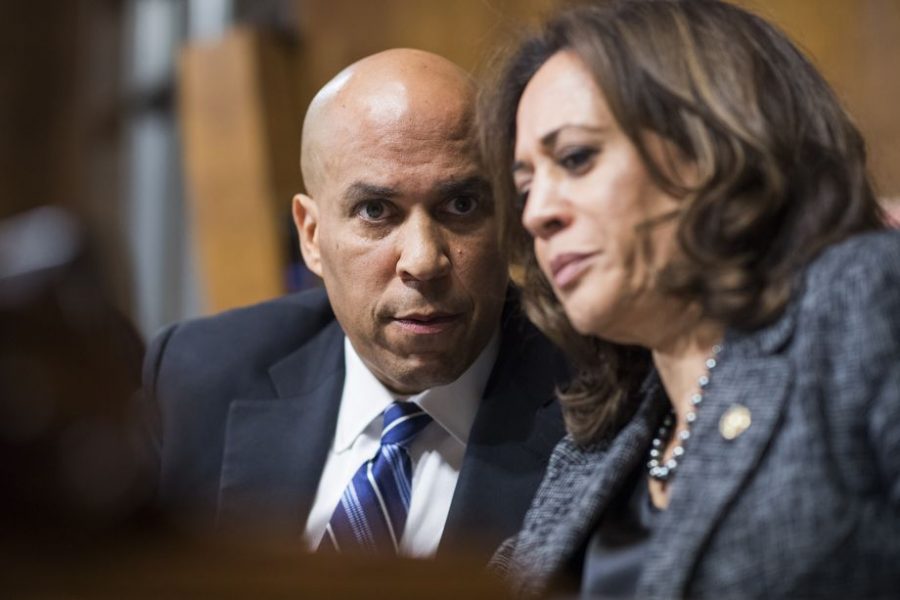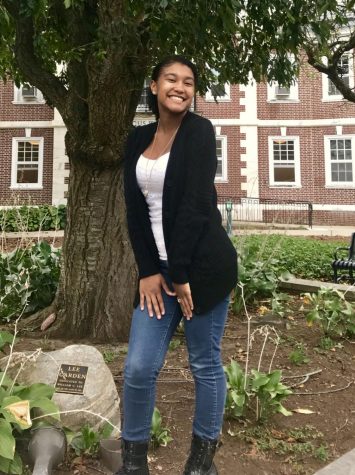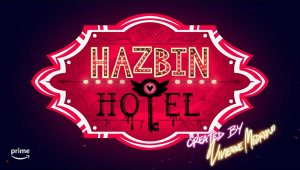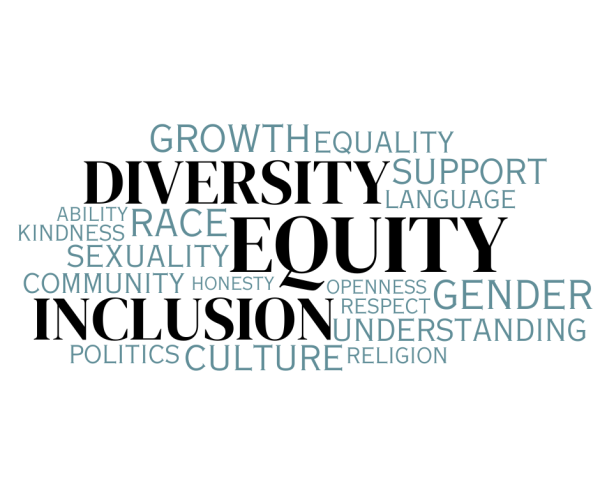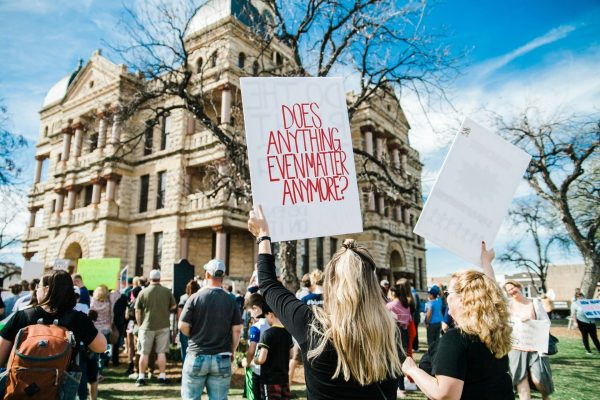Diversity Takes Center Stage For 2020 Election
Cory Booker and Kamala Harris are two African-American Democrats running for president in 2020, amplifying diversity.
February 11, 2019
The reign of white male presidents may be coming to an end. After the 2018 midterm elections showcased the most diverse group of candidates in American history, it is likely that the 2020 presidential election will do the same.
Over a dozen candidates have already announced their run for office, or that they’re considering a run, and amongst them are some the most diverse candidates in United States history.
For the first time, the presidential election is featuring two strong African-American candidates with Senators Kamala Harris and Cory Booker.
Besides a partial bias of rooting for a fellow, mixed black women, I think Harris has the potential to make major changes. Her background in the justice system will help to fix major issues in the U.S., such as the criminal justice system and immigration laws.
In her campaign, Harris claims to be “a fearless advocate for the voiceless and vulnerable and a vocal and determined fighter on behalf of all people.”
“People in power are trying to convince us that the villain in our American story is each other. But that is not our story. That is not who we are. That’s not our America,” Harris said in her message.
Also securing her presidential candidacy is Tulsi Gabbard, U.S. representative from Hawaii. Gabbard is a member of the Hawaii Army National Guard and uses the love for her country as a motivation to live a life defined by public service.
Other diverse candidates include Julián Castro, former Secretary of Housing and Urban Development, and Andrew Yang, founder of Venture for America.
Although the election has yet to start, I am already in favor of these five candidates because they are a representation of what the U.S. is today rather than what it used to be.
American people are cultured and ethnically diverse, not just vanilla. If our nation claims to be “a melting pot,” then our government should be representative of those people who make it that way.
For any indication of what the future may hold, take a look at the 2018 midterm elections.
According to The New York Times, of the 946 candidates running for House, Senate and gubernatorial seats, 411 candidates were women, people of color or LGBT.
Those that came out on top included Sharice Davids and Debra Haaland, the first Native American women elected into Congress, as well as Ilahn Omar and Rashida Tlaib, the first Muslim women elected into Congress, and Jared Polis of Colorado, the first openly gay man to be elected governor.
Our own state has even made major strides with Jahana Hayes, who is the first black woman elected to represent Connecticut in the House of Representatives.
And yet, despite these milestones, the U.S. Congress remains predominantly white.
Last October, a study conducted by Guilford College found that the 116th Congress had historic “lows” for white men, with 60 percent in the House and 71 percent in the Senate, but that “the fact that there is more diversity in Congress should not mask the fact that the Congress is still dominated by white men.”
This past election was impactful on many levels, but it is still not enough to balance the scales of diversity in our government.
Since President Donald Trump’s inauguration, we can collectively agree that America has taken several steps back in terms of success, but there is hope in the 2020 presidential election to correct our mistakes.
Trump may be running for office again; however, I am hopeful the upcoming presidential election will not have the same outcome as the last.
With a number of diverse, strong candidates securing their spots, it’s only a matter of time till we see Trump ungracefully stumble out of office.
